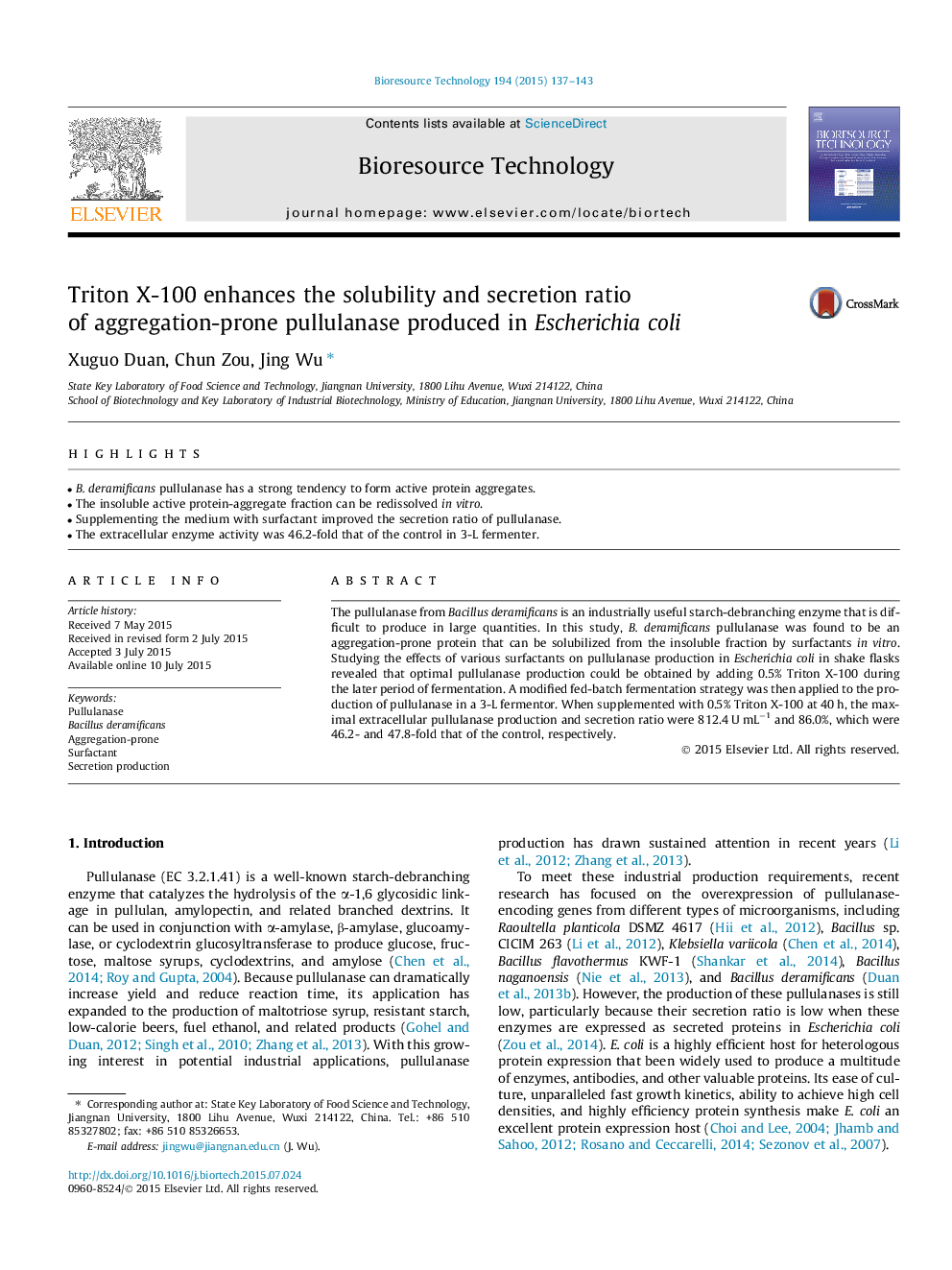| Article ID | Journal | Published Year | Pages | File Type |
|---|---|---|---|---|
| 7073961 | Bioresource Technology | 2015 | 7 Pages |
Abstract
The pullulanase from Bacillus deramificans is an industrially useful starch-debranching enzyme that is difficult to produce in large quantities. In this study, B. deramificans pullulanase was found to be an aggregation-prone protein that can be solubilized from the insoluble fraction by surfactants in vitro. Studying the effects of various surfactants on pullulanase production in Escherichia coli in shake flasks revealed that optimal pullulanase production could be obtained by adding 0.5% Triton X-100 during the later period of fermentation. A modified fed-batch fermentation strategy was then applied to the production of pullulanase in a 3-L fermentor. When supplemented with 0.5% Triton X-100 at 40Â h, the maximal extracellular pullulanase production and secretion ratio were 812.4Â UÂ mLâ1 and 86.0%, which were 46.2- and 47.8-fold that of the control, respectively.
Related Topics
Physical Sciences and Engineering
Chemical Engineering
Process Chemistry and Technology
Authors
Xuguo Duan, Chun Zou, Jing Wu,
